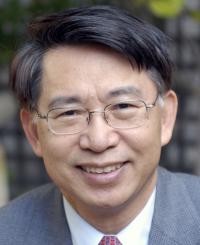New Study from:
Prof. Dr. Tom Lue, University of California, San Francisco
Low-energy Shock Wave Therapy Ameliorates Erectile Dysfunction in a Pelvic Neurovascular Injuries Rat Model
In this study , Tom Lue and his colleagues wanted to investigate the effects of Low-energy shockwave therapy (LESW) in a trauma-related erectile dysfunction (ED) that “commonly occurs in the setting of pelvic surgery or as a result of local injuries such as improvised explosive device in battlefield […]”. This form of ED is often associated with damage to the cavernous nerves (CN) and/or the internal pudendal bundle (IPB). Patients suffering from this form of ED are often not responsive for common therapies, e.g. phosphodiesterase-5-inhibitors. In conclusion, no current therapy restores normal erectile physiology.
To test if LESW has an effect on the erectile function and physiology, the group used a total of 32 newborn Sprague-Dawley rats in their experiments. To examine progenitor cell recruitment, each rat was injected intraperitoneal with 5-ethynyl-2’-deoxyuridine (EdU, 50 mg/kg). When the rats were 12 weeks old, they were separated into 4 groups of 8 rats. The groups were as following:
- Sham surgery
- Pelvic neurovascular injury by bilateral cavernous nerve injury and internal pudendal bundle injury (PVNI)
- PVNI treated with LESW (low energy: 0.06 mJ/mm², 300 pulses, 3 Hz)
- PVNI treated with LESW (high energy: 0,09 mJ/mm², 1000 pulses, 3 Hz)
The rats received 4 weeks of LESW treatment and 1 week of washout. After that they all were examined for erectile function measurement. Furthermore, penile tissue was used for histology and Western Blots as well as the Major pelivic Ganglion (MPG) and urethra.
LESW treatment improves erectile function in a rat model of pelvic neurovascular injury by leading to angiogenesis, tissue restoration, and nerve generation with more endogenous EdUþ progenitor cells recruited to the damaged area and activation of Schwann cells. LESW facilitates more complete re-innervation of penile tissue with regeneration of neuronal nitric oxide synthase (nNOS)-positive nerves from the MPG to the penis. In vitro experiments demonstrated that LESW has a direct effect on Schwann cell proliferation. In addition, Schwann cell activation-related markers including p-Erk1/2 and p75 were upregulated after LESW treatment.
The team concluded, that LESW induces endogenous progenitor cell recruitement. Furthermore The observed Schwann Cell activation coincides with agniogenesis and tissue/nerve- regeneration in the rat model.
If you want to read more, click here.
